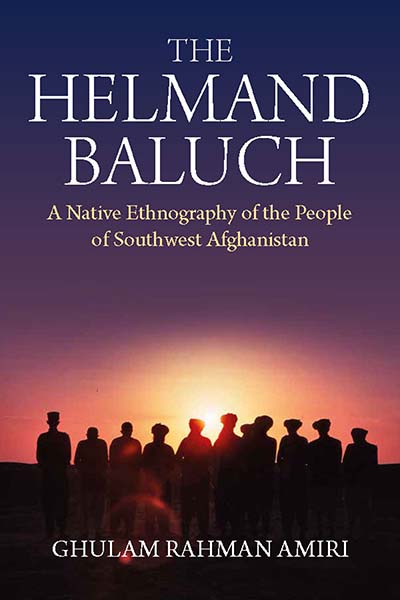“The Helmand-Sistan region is one of the most inaccessible parts of Afghanistan, a country noted for its remoteness even at the best of times. The Baluch of Afghanistan, furthermore, are one of the least studied ethnic groups in Afghanistan. This makes the work of the late Ghulam Rahman Amiri a major breakthrough. Not only does it make available a wealth of original data otherwise unavailable, it is the first study of an ethnic group in Afghanistan from the perspective of a native of that country. It comes therefore without the intellectual baggage and theories that so many western ethnographers might bring to their subjects. Amiri’s book is all the more valuable therefore, as much for its perspective as for the huge wealth of raw material made available to the scholarly world for the first time.” • Warwick Ball, Independent Scholar, editor of Afghanistan Journal and author of The Archeological Gazetteer of Afghanistan
“Amiri's book is a true gift. Wonderfully comprehensive in its scope and detail, it brings Sistan and its people to life, covering a remarkably broad range of topics. All students and scholars of Afghanistan will need to have it on their shelves.” • Thomas J. Barfield, Boston University and President, American Institute of Afghanistan Studies
In the 1970s, in his capacity as government representative from the Afghan Institute of Archaeology, Ghulam Rahman Amiri accompanied a joint Afghan-US archaeological mission to the Sistan region of southwest Afghanistan. The results of his work were published in Farsi as a descriptive ethnographic monograph. The Helmand Baluch is the first English translation of Amiri’s extraordinary encounters. This rich ethnography describes the cultural, political, and economic systems of the Baluch people living in the lower Helmand River Valley of Afghanistan. It is an area that has received little study since the early 20th Century, yet is a region with a remarkable history in one of the most volatile territories in the world.
Ghulam Rahman Amiri, a historian at Kabul University, served as Director of the Training Center for the Department of Civil Aviation of Afghanistan and was then an academic member of the Kabul Museum. After the Soviet invasion of 1979, he was elevated to the role of Minister of Tourism for Afghanistan. Several years later, he ran afoul of government policies, was jailed, then forced to flee to India. Amiri eventually emigrated to Denmark, where he passed away from Lou Gehrig's disease (ALS) in 2003.
LC: DS354.6.B35 A45 2020
BISAC: SOC002010 SOCIAL SCIENCE/Anthropology/Cultural & Social; SOC008070 SOCIAL SCIENCE/Ethnic Studies/Middle Eastern Studies; SOC003000 SOCIAL SCIENCE/Archaeology


